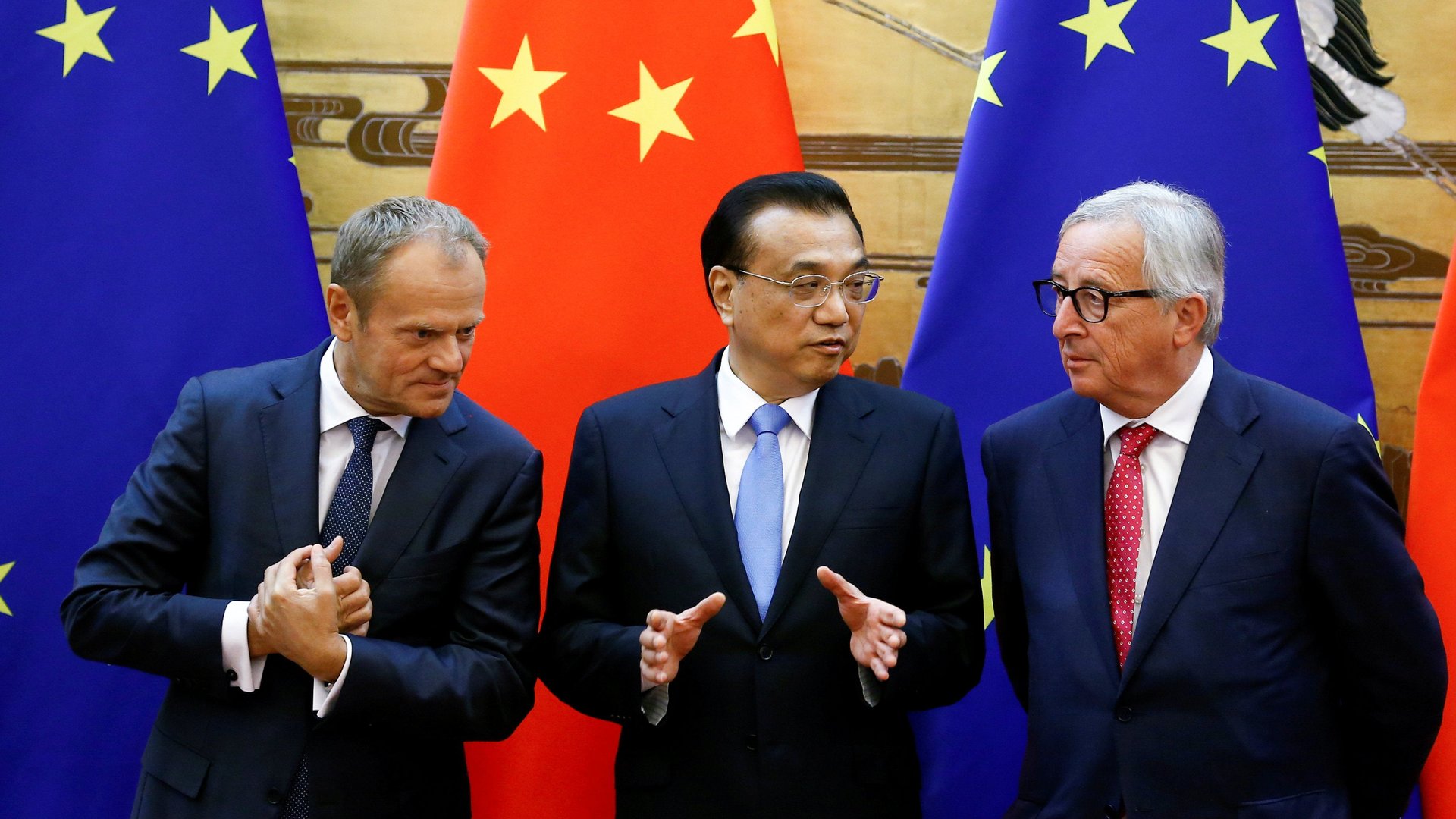Donald Trump is pushing the EU and China closer together
The EU and China are edging closer together—and that’s almost entirely because of Donald Trump’s trade wars.


The EU and China are edging closer together—and that’s almost entirely because of Donald Trump’s trade wars.
A statement wrapping up their summit (pdf) is a sight to behold—and harks back to the heady days of maximal cooperation between the EU and China.
“It lists so many points of convergence, and so many points of action,” François Godement, an expert in EU-China relations at the European Council on Foreign Relations, told Quartz today (July 16).
“On the surface of it, it’s an incredibly positive success for China, and I can only think of Donald Trump as the hidden producer of this communique,” he said. “That’s very clear.”
US tariffs on $34 billion in Chinese imports are now in effect, part of what China has called “the largest trade war in economic history.” Trump has warned that the US may impose tariffs on as much as $500 billion worth of Chinese goods.
Though today’s joint statement tilts more favorably towards China, the US offensive seems to have spooked the superpower—and the document is not devoid of Chinese capitulation.
Its mention of China’s commitments to strengthening intellectual property rules is significant, considering the EU lodged an intellectual property rights complaint with China at the World Trade Organization last month.
The two sides similarly agreed to establish a working group on World Trade Organization reforms—something that, up to now, was a no-go area for China. They also released a reasonably expansive joint communique on climate change and clean energy—something China seemed to balk at only last year.
Both sides committed to proceeding with investment treaty talks, with the statement outlining how the EU and China have—for the first time ever—submitted market-access offers, which could end up providing investors with sustained access to EU and Chinese markets, as well as much-needed protection for investments.
The summit produced its own kind of disagreements, too. EU commission president Jean Claude-Juncker stressed that China, long accused of protectionist policies, could allow more trade: “It knows how to open up.” Later, he reminded China that the EU was “not naive.”
Godement noted that, in the end, the EU and China will likely never align fully: “The main problems of the relationship, which have to do with the terms of trade, and the way China invests abroad, are scarcely even mentioned.”